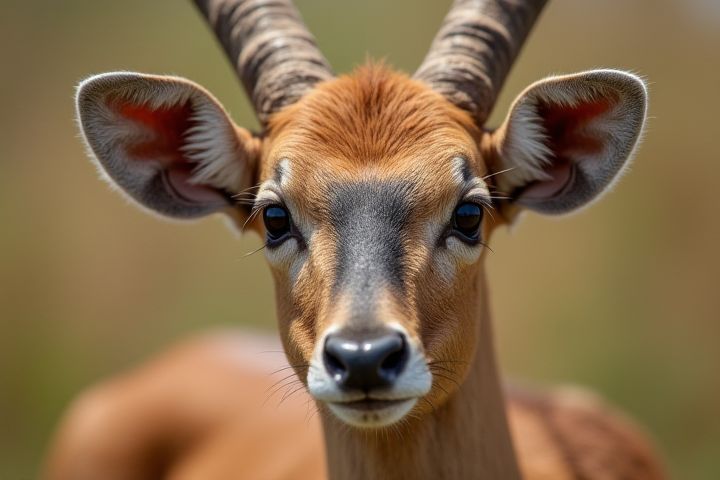
Wildlife conservation in Nigeria plays a critical role in preserving the nation's rich biodiversity, which includes numerous endemic species such as the Cross River gorilla and the African manatee. Key protected areas, including national parks like Yankari and Cross River, serve as vital habitats for endangered wildlife, providing crucial ecological functions. Organizations such as the Nigerian Conservation Foundation work tirelessly to raise public awareness and engage in programs aimed at curbing poaching and habitat destruction. Community-based initiatives empower local populations to involve themselves in conservation efforts, ensuring sustainable practices while enhancing their livelihood. Your participation in wildlife conservation can significantly impact the preservation of Nigeria's unique ecosystems and the diverse species they support.
Biodiversity Hotspots
Wildlife conservation in Nigeria targets critical biodiversity hotspots, which are regions rich in unique flora and fauna that are endangered or threatened. The country is home to diverse ecosystems, including tropical rainforests and savannas, that support a myriad of species, such as the endangered Cross River gorilla and the West African manatee. Effective conservation efforts emphasize habitat preservation, anti-poaching initiatives, and community engagement to sustain these vital areas. You can contribute to these efforts by raising awareness and supporting organizations dedicated to protecting Nigeria's rich wildlife heritage.
Endangered Species
Wildlife conservation in Nigeria emphasizes the protection of endangered species such as the African manatee, the Cross River gorilla, and the Nigerian-Cameroon chimpanzee. Efforts involve habitat preservation, anti-poaching initiatives, and community awareness programs to engage local populations in conservation practices. Organizations like the Nigerian Conservation Foundation (NCF) work tirelessly to promote biodiversity and ensure sustainable ecosystems. By participating in conservation efforts, you can contribute to the preservation of Nigeria's rich wildlife heritage for future generations.
Deforestation Challenges
Wildlife conservation in Nigeria confronts significant challenges due to rampant deforestation, primarily driven by agricultural expansion, logging, and urban development. The loss of forest habitat significantly threatens endemic species such as the Cross River gorilla and the Nigeria-Cameroon chimpanzee, pushing them closer to extinction. Efforts to combat deforestation involve initiatives like reforestation, sustainable land management, and community engagement to promote environmental awareness. By addressing these challenges, you contribute to preserving Nigeria's rich biodiversity and ensuring the survival of its unique wildlife.
Poaching and Illegal Wildlife Trade
Wildlife conservation in Nigeria is crucial for protecting biodiversity, particularly against poaching and the illegal wildlife trade, which threaten various species. Organizations like the Nigerian Conservation Foundation work tirelessly to implement anti-poaching strategies and raise awareness about the ecological importance of endangered animals. The country is home to iconic species such as the African elephant and the critically endangered Cross River gorilla, both of which are at risk due to illegal hunting and habitat loss. Engaging local communities in conservation efforts not only helps in safeguarding wildlife but also promotes sustainable livelihoods, emphasizing the interconnectedness of people and nature.
National Parks and Reserves
Wildlife conservation in Nigeria emphasizes the protection of diverse ecosystems within National Parks and Reserves, such as the Yankari National Park and the Niger Delta wetlands. These areas serve as critical habitats for endemic species, including the African elephant and the endangered Cross River gorilla, while promoting biodiversity conservation. Efforts are directed towards sustainable tourism and community engagement to create awareness about the importance of preserving these natural resources. Your involvement in conservation initiatives can lead to improved strategies and enhance the overall health of Nigeria's wildlife populations.
Community Involvement
Wildlife conservation efforts in Nigeria prioritize community involvement to ensure sustainable practices and habitat protection. Local communities play a vital role in protecting biodiversity by participating in initiatives such as anti-poaching campaigns and habitat restoration programs. Engaging indigenous populations fosters a sense of ownership, leading to increased awareness of the ecological importance of wildlife. Through education and collaboration, you can contribute to preserving endangered species and their natural environments while enhancing local livelihoods.
Legislation and Policy
Wildlife conservation in Nigeria is primarily governed by the Endangered Species (CONTROL OF INTERNATIONAL TRADE AND TRANSIT) ACT of 1985, aimed at protecting threatened flora and fauna. The National Parks Service oversees the management of protected areas, ensuring biodiversity preservation and sustainable tourism through the establishment of multiple national parks. Collaboration between governmental and non-governmental organizations enhances environmental awareness, implementing education programs to promote community involvement in wildlife protection. Your support for local conservation initiatives can significantly impact the preservation of Nigeria's rich biodiversity and ecosystem resilience.
International Partnerships
Wildlife conservation in Nigeria emphasizes collaborative efforts through international partnerships aimed at preserving biodiversity. Organizations like the World Wildlife Fund (WWF) and the African Wildlife Foundation (AWF) engage with local communities to implement sustainable practices that protect endangered species such as the African elephant and the Nigerian cross river gorilla. These partnerships facilitate research initiatives and funding opportunities to enhance conservation education and create protected areas. Through these joint efforts, Nigeria strives to maintain its rich ecological heritage while addressing challenges posed by poaching and habitat loss.
Ecotourism Opportunities
Wildlife conservation in Nigeria emphasizes ecotourism opportunities as a sustainable method to protect biodiversity while supporting local economies. Ecotourism initiatives promote the country's rich flora and fauna, including endemic species like the Niger Delta red colobus monkey and the African elephant, attracting both local and international tourists. By engaging communities in conservation efforts, you foster a sense of stewardship, empowering locals to preserve their natural heritage. Through responsible ecotourism practices, Nigeria aims to balance environmental protection with economic growth, ensuring the longevity of its unique ecosystems.
Conservation Education and Awareness
Wildlife conservation in Nigeria emphasizes conservation education and awareness as essential strategies for promoting biodiversity and sustainable practices. Conservation education programs target local communities, raising awareness about the importance of wildlife and their habitats while fostering a sense of stewardship among residents. Engaging citizens through workshops, seminars, and outreach initiatives enhances knowledge about endangered species like the Cross River gorilla and the African grey parrot. You can support these efforts by participating in community-based projects that aim to protect natural resources and promote ecological sustainability.
